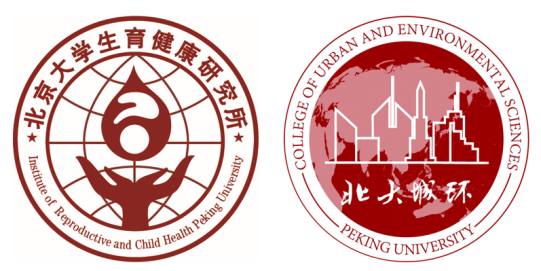
Notice on Hosting the Peking University-ACS Publications Environmental Health International Conference (First Round)


![]()
Emerging pollutants can disrupt ecosystems and threaten human health, posing significant risks to global environmental health. Addressing these pollutants has become a critical task in the field of environmental pollution management both in China and globally. China has formulated the "Action Plan for the Management of Emerging Pollutants", which proposes a systematic approach of "Screening-Assessment-Control." This plan actively promotes foundational research on the combined exposure, pollution control, and health effects of emerging contaminants. It also integrates new technological tools from environmental chemistry, geography, medicine, artificial intelligence, and big data into the research system for emerging contaminants. Furthermore, during the development of new energy sources for a clean and low-carbon transition under the carbon neutrality goal, the issue of emerging pollutants will also arise. Especially under global warming conditions, the re-release of pollutants and some extreme events may lead to newly recognized environmental behaviors of pollutants. Therefore, managing emerging pollutants requires new theories, methods, and paradigms to address complex environmental pollution exposure scenarios. Against this backdrop, Peking University, as the organizing institution, in collaboration with the ACS Publications, Research Center for Eco-Environmental Sciences of the Chinese Academy of Sciences, Fudan University, Tsinghua University, Zhejiang University of Technology, Dalian University of Technology, et al. is inviting top international experts in the field of environmental health to host a multidisciplinary international forum on environmental and health.
Peking University has established the nation's first "Undergraduate Program in Environmental Health" (jointly offered by the College of Urban and Environmental Sciences and the School of Public Health) and has founded the first "Department of Environmental Health" (within the College of Environmental Sciences and Engineering). The university has conducted long-term explorations in the field of environmental health and has undertaken a series of research projects on emerging contaminants. We warmly welcome colleagues from both domestic and international institutions to gather at Peking University this autumn to discuss academic challenges and hot topics in the prevention and control of emerging contaminants, and to promote global cooperation aimed at mitigating and preventing health issues caused by these contaminants
Theme: What Are Next Waves for Emerging Pollutants? A Multidisciplinary International Forum on Environment & Health
Academic Committee:
Chairman: Guibin Jiang
Vice-Chairman: Shu Tao, Fengchang Wu, Tong Zhu, Chunying Chen, Bryan Brooks, Daniel Schlenk, Gregory Lowry, Jonathan Martin, Pablo Gago-Ferrero, Susan Richardson
Organizing Committee:
Chairman:
Bin Wang, Guofeng Shen
Vice-Chairman:
Yuanchen Chen, Mingliang Fang, Xiaogang Jiang, Nan Li, Tiantian Li, Wei Li, Zhiwen Li, Xuehua Li, Qian Liu, Xiaoxia Lu, Tao Xue, Chenyi Yuan, Qirui Zhong
Attendees: (to be updated)
(1) Foreign Experts
Name |
Affiliation |
Country |
Bryan Brooks, Professor, ES&T Lett Editor-In-Chief |
Baylor University |
US |
Chirag Patel, Associate Professor, Artificial Intelligence |
Harvard University |
US |
Daniel Schlenk, Professor, ES&T Executive Editor |
University of California Riverside |
US |
Gregory Lowry, Professor, ES&T Executive Editor |
Carnegie Mellon University (US) |
US |
Jonathan Martin, Professor, ES&T Lett Associate Editor |
Stockholm University |
Sweden |
Michael Bloom, Associate Professor, Environment and Reproductive Health |
George Mason University |
US |
Pablo Gago-Ferrero, Professor, ES&T Associate Editor |
Institute of Environmental Assessment and Water Research |
Spain |
Shane Snyder, Professor, ACS ES&T Water Editor-In-Chief |
Georgia Institute of Technology |
US |
Susan Richardson, Professor, ES&T Executive Editor |
University of South Carolina |
US |
(2) Domestic Experts
Name |
Affiliation |
Country |
Guibin Jiang, Academician of Chinese Academy of Sciences |
CAS Research Center for Eco-Environmental Sciences |
China |
Fengchang Wu, Academician of Chinese Academy of Engineering |
Chinese Academy of Environmental Sciences |
China |
Chunying Chen, Academician of Chinese Academy of Sciences |
CAS National Center for Nanoscience and Technology |
China |
Bo Pan |
Kunming University of Science and Technology |
China |
Shu Tao, Academician of Chinese Academy of Sciences |
Peking University |
China |
Tong Zhu, Academician of Chinese Academy of Sciences |
Peking University |
China |
Jianying Hu, Distinguished Professor |
Peking University |
China |
Host: Institute of Reproductive and Child Health, Peking University; College of Urban and Environmental Sciences, Peking University
Co-hosts: ACS Publications, CAS Research Center for Eco-Environmental Sciences, Fudan University, Tsinghua University, Zhejiang University of Technology, Dalian University of Technology, China University of Geosciences (Beijing), Special Committee on Environmental and Reproductive Health, National Health Commission Key Laboratory of Epidemiology of Major Diseases (Peking University), Ministry of Education (Peking University), Chinese Society of Environmental Mutagens, Ministry of Education Laboratory for Earth Surface Processes (Peking University), China Cohort Consortium (Peking University)
Date: 9.20+9.21 morning (1.5 days)
Location: Peking University
Format: On-site meeting + broadcast live online (American Chemical Society, ACS).
Cost of registering: No registration fee, lunch provided, transportation and accommodation are self-arranged.
Registration Requirements: Due to limited venue capacity, there is a limit of 100 on-site participants. Participants will be selected based on registration information and relevance to the profession. Registration information includes: Name, Affiliation, Email, Mobile Number, and a brief personal introduction (up to 200 words).
Conference Assistants:
Consultation: Bin Wang, Email: binwang@pku.edu.cn
Registration: Changxin Lan, Email: lancx@pku.edu.cn
Institute of Reproductive of Child Health, Peking University
College of Urban and Environmental Sciences, Peking University
Date: June 4th, 2024

